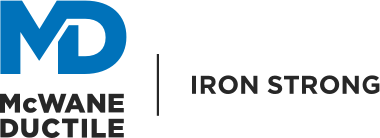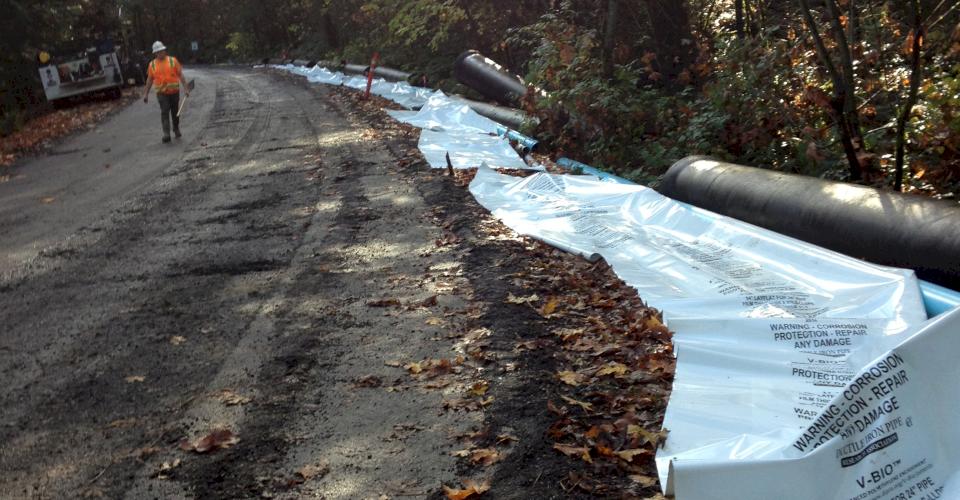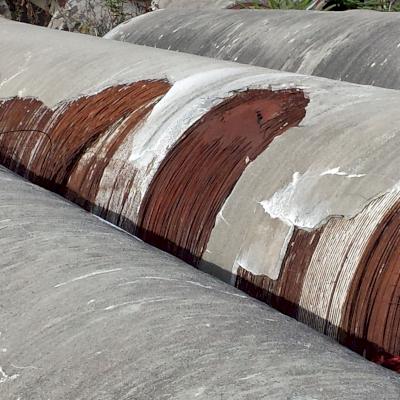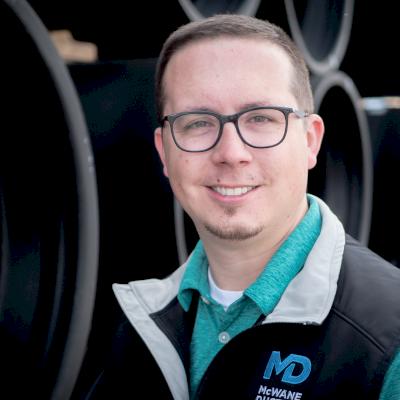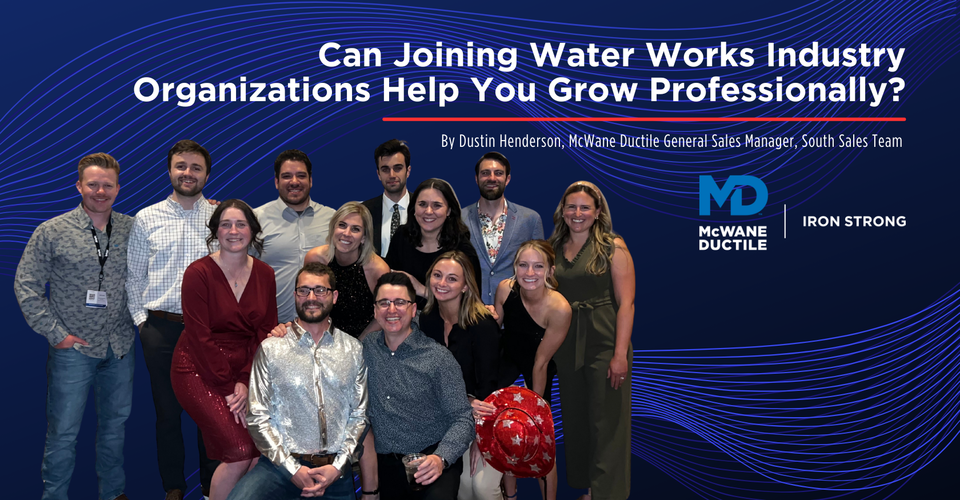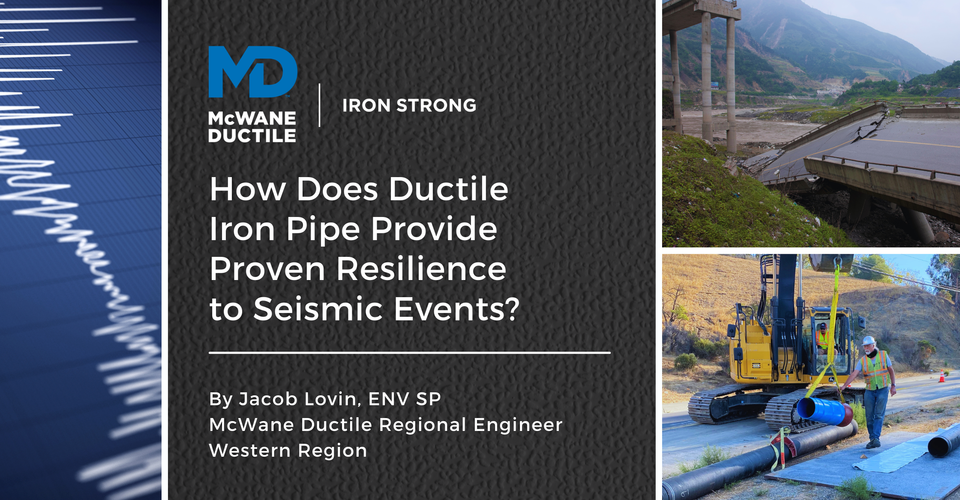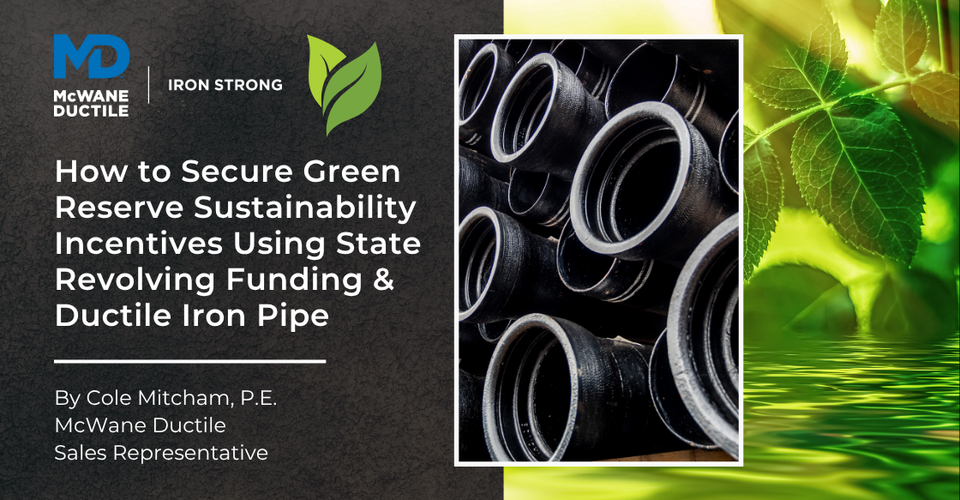Prestressed Concrete Cylinder Pipe (PCCP) has been used in water and wastewater applications for nearly 80 years. The thought process behind PCCP was sound, in that it would combine concrete's high compressive strength with steel's high tensile strength. However, like many products, PCCP has continued to fall short in the following years in many comparative categories to Ductile iron.
Ductile iron pipe (DI pipe) was introduced to the waterworks industry about 13 years later, which allowed a lot of time for the development of a superior pipe design. Various factors were taken into consideration to create a more sustainable product, including corrosion protection and evolved installation practices, all of which contribute to a pipeline's longevity.
What About Corrosion Concerns?
Corrosion is an incredibly valid concern of many utilities and engineers across the country when it comes to pipeline longevity and what they should expect out of their pipe material choice. While concrete itself remains a corrosion-resistant material, the prestressed wires - which create the bulk of PCCP strength - are highly susceptible to corrosion. How often do you see chips, cracks, and imperfections in concrete? All the time, right? Although that is not a big deal when talking about a sidewalk, a small chip in a pipe can lead to exposure of the steel wire, which can easily result in catastrophic pipeline failure.
Ductile iron provides a naturally occurring oxide layer via the manufacturing process. This oxide layer can resist corrosion in many soil conditions. However, for those looking for an extra “insurance” policy against external corrosion, polyethylene encasement is an easy solution.
V-Bio® Enhanced Polyethylene Encasement easily slides over the pipe during installation. V-Bio then creates a barrier between the soil and the Ductile iron, as well as offers an antimicrobial biocide on the inside layer that interacts with the pipe. This barrier protects against any microbial induced corrosion of the pipe. With this enhanced laying option, Ductile iron can clearly offer peace of mind with those concerned with their pipe systems' corrosion.
Are There Difference In Installation Requirements?
The old saying of "time is money" may be a cliché, but that does not mean it is not valid. Labor cost is something that adds up fast. Labor expenses are typically much higher than the piping material alone. Many contractors in the water and sewer industry are accustomed to changes in the plans and dealing with issues that were not accounted for in the initial planning stage. Most of the time, we can roll with the punches and sometimes even improvise.
When working with PCCP, the level of flexibility in planning and design drastically decreases, primarily due to the limitations associated with field cuts on PCCP. These cutting limitations are where time is money, and any delay in getting a specific sized piece of PCCP can put a large dent in the budget due to a work slowdown or stoppage.
For an experienced contractor, a field cut on DI pipe is just another day on the job, and it only takes minutes to perform. Ductile iron’s flexibility in the field when problems arise is second to none, especially to PCCP.
Installation time is also increased when installing PCCP due to the diapering/grouting of the joints. Again, time is money, and the extra time may also equate to more job issues.
Product Durability
Ductile iron and PCCP are both heavy materials and take a decent amount of experience to work with, but accidents do happen. Job sites can be chaotic with many moving parts happening all at once, and although mishandling pipe or even a dropped piece of pipe is something most contractors are reluctant to admit, the reality is it will and does happen.
PCCP is incredibly delicate for being such a heavy-duty structure, and the slightest mismanagement can result in a crack and another potential for failure down the road. Ductile iron should also be treated with respect and by no means should be dropped or mishandled. However, it is much more likely to withstand the jobsite environment, and if there is no malformation to the pipe, it will not change its structural integrity.
Easy Assembly & Maintenance = Greater Longevity
Ductile iron and PCCP have been around a long time, but is there a better choice as to which one will last longer on a more consistent basis? Absolutely. As mentioned earlier in this article, PCCP and Ductile were introduced as pipeline options approximately 13 years apart. However, Ductile continues to have more active pipeline systems than PCCP. Why is that? Ductile iron offers superior adaptability over PCCP in two significant areas: pipe tapping and deflection.
Tapping into Ductile iron is typically a no-frills, in and out procedure. Whereas with PCCP, you have the steel wiring to worry about as well as the unnatural chipping of the concrete. It requires special training that not all contractors have been exposed to. This can add to the increased risk of extending a new branch of PCCP onto your system.
Although deflection of the installed pipe is possible with PCCP, Ductile provides a much higher capability of up to 5-degrees at the joint connection. With Ductile, the ability to easily deflect the joints can make it much easier to negotiate around unexpected obstructions. No “specials” are required to accomplish this either.
Wrap Up
After comparing the two materials, one can understand the dominance in the use of Ductile iron pipe to PCCP. Corrosion resistance and protection, the ease of installation, and the Ductile's unequaled durability all contribute to its longevity. Using DI pipe on your next project will ensure a safer and longer-lasting pipeline.
Need Assistance with Your Waterworks Project?
If you have any questions or need additional information, please feel free to contact your local McWane Ductile Representative. We have team members who’ve managed small and large water utility systems, served in engineering consulting firms, and bring decades of experience in solving field issues involving pipeline construction and operation. From design to installation, we take great pride in providing education and assistance to water professionals throughout the water and wastewater industry.
